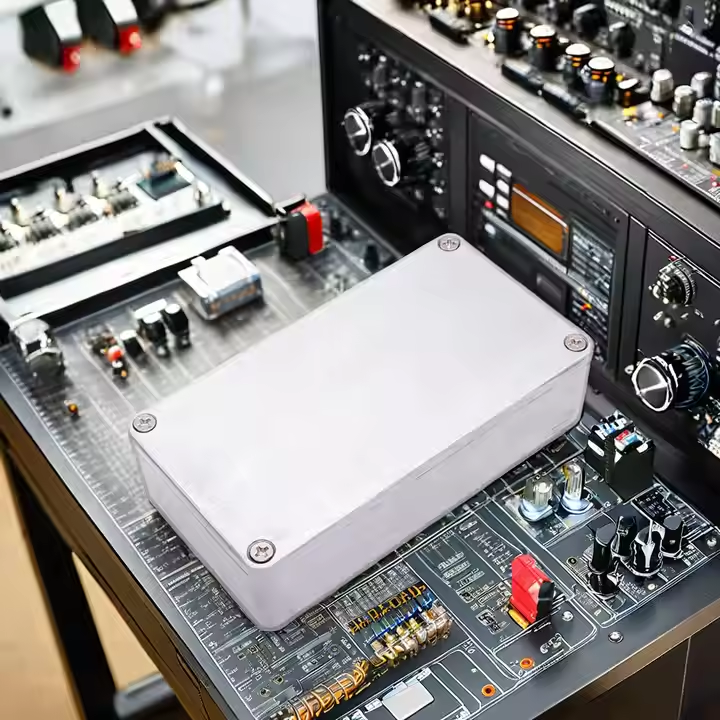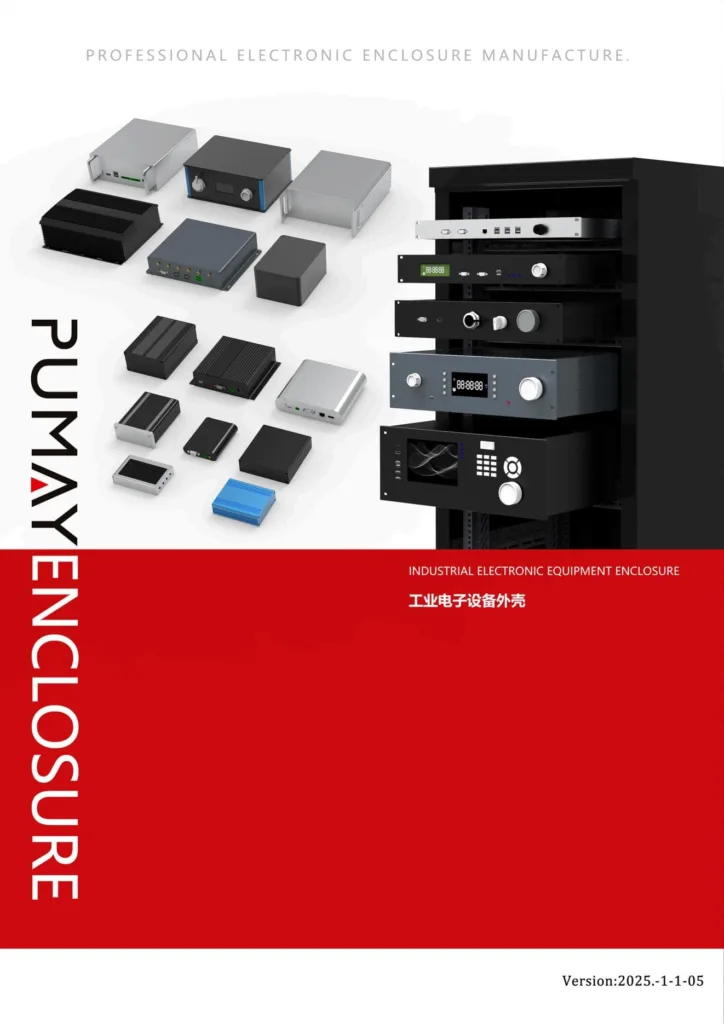What is Diecast Aluminum Enclosure?
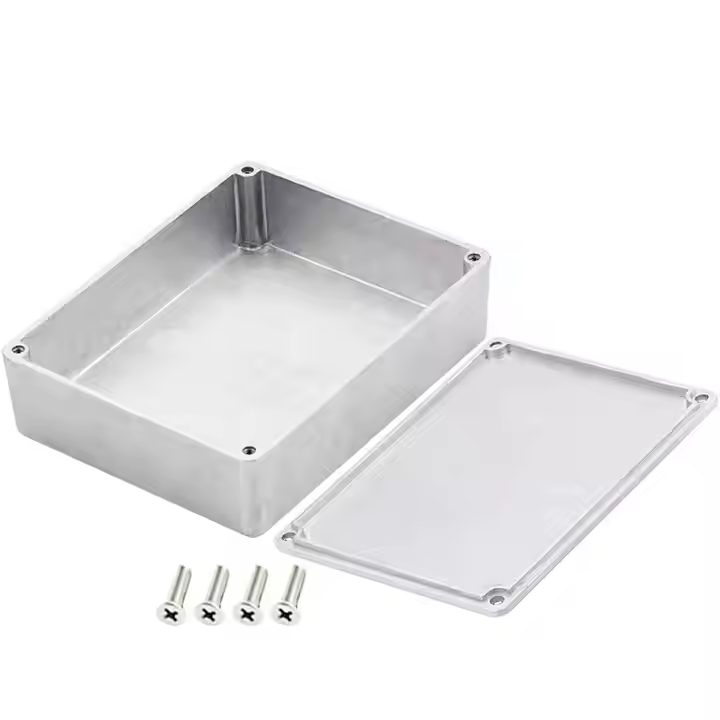
Diecast aluminum enclosures provide a solid, durable solution for protecting electronic components. But, what exactly are they? Let's explore.
Diecast aluminum enclosures are durable, customizable, and offer excellent protection for electronic devices.
Understanding the benefits of diecast aluminum enclosures can help you decide if they're the right choice for your needs.
What is Diecast Aluminum?
Diecasting is a process where molten metal is injected into a mold under high pressure. Diecast aluminum, specifically, is aluminum that has been formed using this method. The result is a strong, lightweight, and intricately shaped part.
Diecast aluminum is a metal formed by injecting molten aluminum into a mold under high pressure.
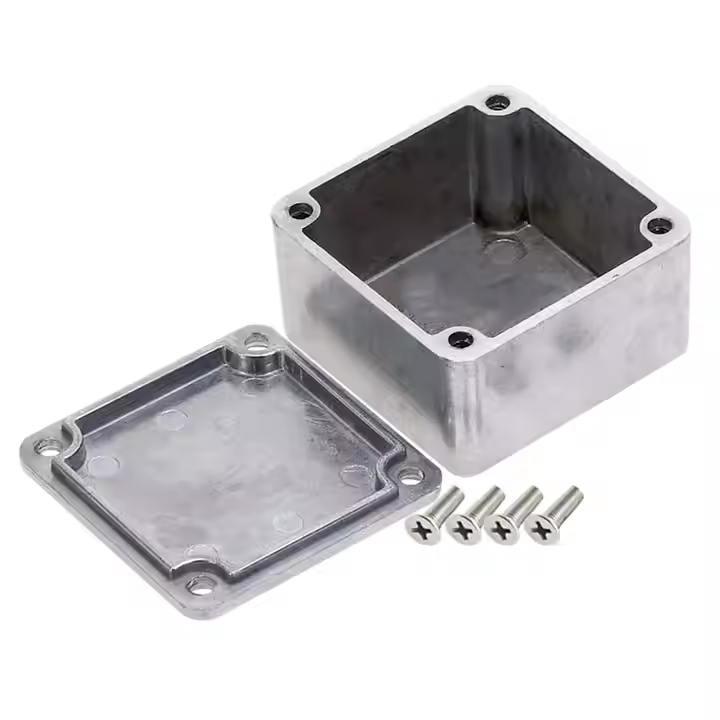
Dive Deeper: Diecasting Process and Benefits
Diecasting is one of the most effective methods for creating precise, strong, and lightweight parts. The process allows manufacturers to produce components with intricate shapes and tight tolerances, which is crucial in industries like electronics. In diecasting, aluminum is heated to a molten state and then injected into molds made of hardened steel.
| Factor | Impact |
|---|---|
| Precision | High – allows for tight tolerances. |
| Durability | Excellent – resistant to impact. |
| Weight | Lightweight – ideal for portable enclosures. |
| Customizability | High – can create custom shapes. |
This method ensures that diecast aluminum enclosures are both functional and customizable. Whether it's an amplifier box or an electronic instrument chassis, diecast aluminum enclosures protect sensitive components from environmental damage.
Is Die Cast Aluminum Better than Aluminum?
You may wonder if diecast aluminum is better than regular aluminum. The answer depends on the application. Diecast aluminum offers unique advantages in terms of strength, customization, and weight.
Diecast aluminum is stronger, more precise, and offers greater flexibility than regular aluminum.
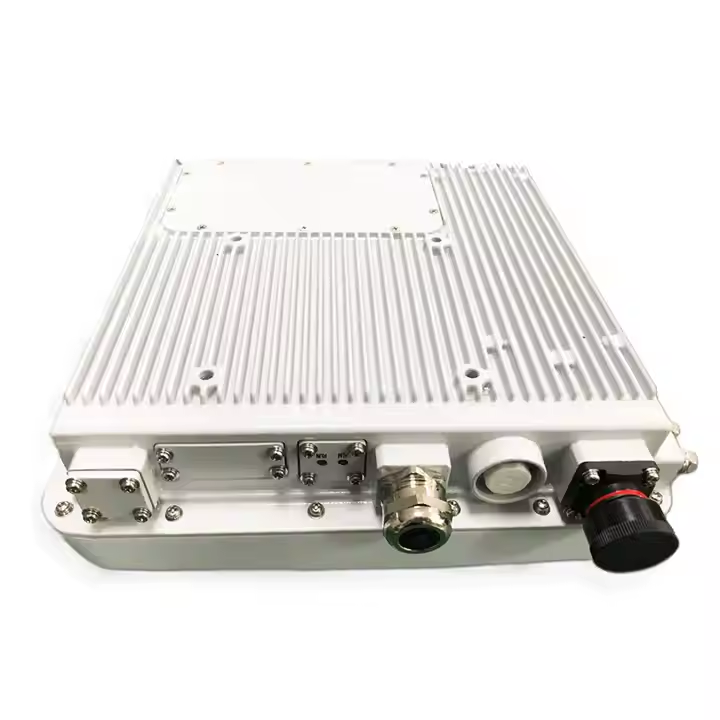
Dive Deeper: Comparing Diecast Aluminum and Regular Aluminum
While both diecast aluminum and regular aluminum have their strengths, they are different in terms of application. Regular aluminum is often used in extrusions, sheets, or rolled products, which are ideal for lighter structures or when cost is a bigger concern.
Diecast aluminum, on the other hand, is best for intricate, detailed parts that need precision and durability. For example, an electronics enclosure made of diecast aluminum is ideal for high-quality products that require protection from external factors such as dust, moisture, or shock.
| Factor | Diecast Aluminum | Regular Aluminum |
|---|---|---|
| Precision | High | Moderate |
| Durability | Excellent | Good |
| Weight | Lightweight | Varies |
| Customization | High | Low |
The ability to cast aluminum into intricate shapes also means that diecast aluminum can be tailored more easily to the needs of specific products, such as custom-cut holes for wiring or logos.
Is Die Cast Aluminum Cookware Safe?
When it comes to cookware, safety is always a concern. Diecast aluminum is often used in the production of cookware due to its heat conductivity and durability. But is it safe?
Diecast aluminum cookware is generally safe when manufactured properly, but issues can arise with improper coatings.
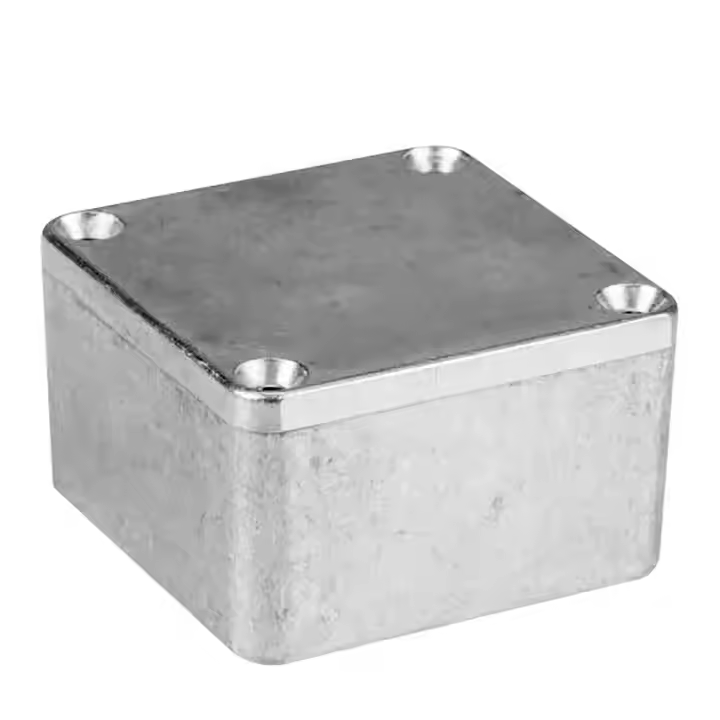
Dive Deeper: Safety Considerations for Diecast Aluminum Cookware
Diecast aluminum cookware can be safe, but it depends on how it’s manufactured. Many high-quality diecast aluminum cookware products are coated with non-stick surfaces that are safe for cooking. However, if the coating is damaged or of poor quality, it can pose risks such as aluminum leaching into food.
Additionally, there are concerns about the potential for aluminum exposure, especially when cooking with acidic foods. Fortunately, many diecast aluminum cookware brands today use advanced coatings to prevent such issues. It's always best to choose high-quality products and follow care instructions.
| Concern | Impact |
|---|---|
| Leaching of aluminum | Possible with poor coatings. |
| Heat conductivity | Excellent – heats evenly. |
| Durability | High – long-lasting when cared for. |
| Coating quality | Important for safety. |
When selecting diecast aluminum cookware, always opt for trusted brands and ensure that the product is free from harmful chemicals such as PFOA or PFTE.
Does Diecast Aluminum Rust?
One common concern is whether diecast aluminum can rust. The short answer is no.
Diecast aluminum does not rust because aluminum itself is resistant to corrosion.
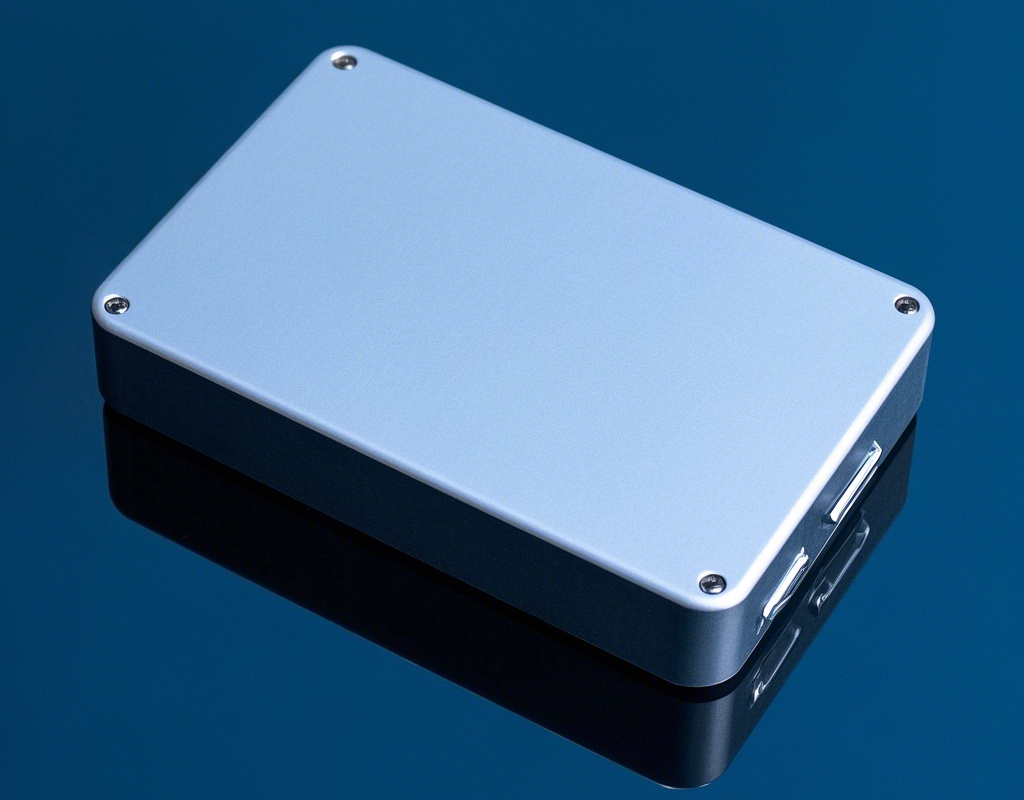
Dive Deeper: Corrosion Resistance of Diecast Aluminum
Aluminum naturally forms a protective oxide layer when exposed to air. This layer acts as a shield, preventing the metal from rusting. Diecast aluminum enclosures benefit from this property, making them ideal for outdoor and industrial applications where rust and corrosion could be an issue.
However, while diecast aluminum doesn’t rust, it can still corrode under certain conditions. For example, in environments with high salt content (like coastal areas), aluminum may undergo a form of corrosion known as pitting. This doesn’t affect the structural integrity significantly but can impact the appearance.
| Factor | Impact |
|---|---|
| Corrosion Resistance | High due to oxide layer. |
| Pitting | Possible in salty environments. |
| Durability | Remains intact in most conditions. |
| Maintenance | Low – easy to maintain. |
To prevent corrosion, it's important to avoid exposing diecast aluminum to harsh chemicals or saltwater for long periods.
Why is Diecast Aluminum So Expensive?
Diecast aluminum is often more expensive than other metals, but why?
The expense of diecast aluminum comes from the intricate manufacturing process and the high-quality materials used.
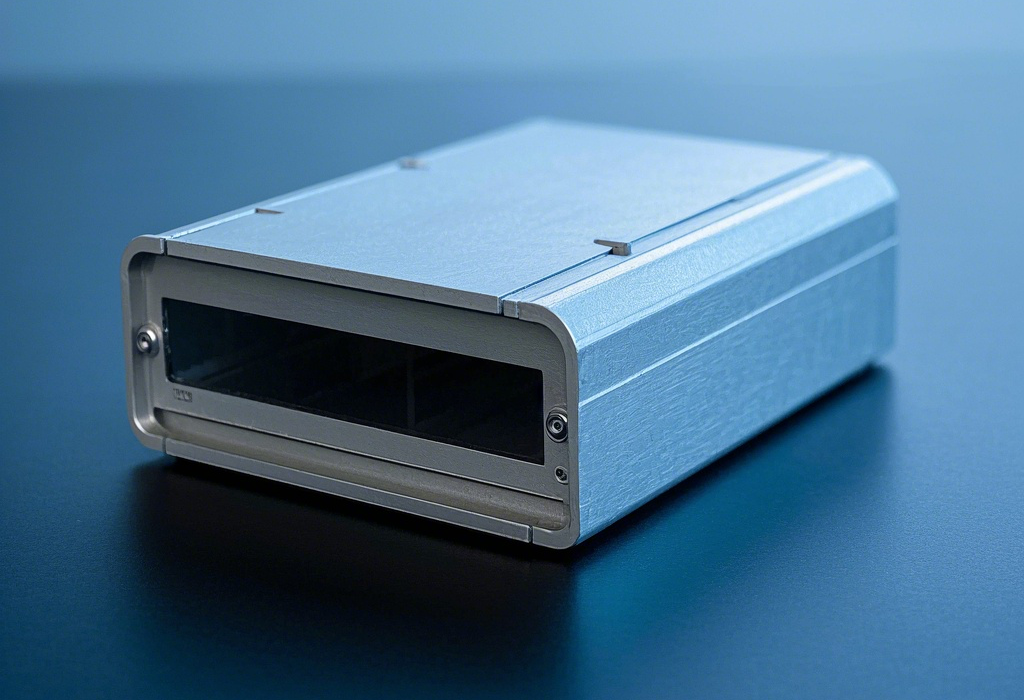
Dive Deeper: Factors Contributing to the Cost of Diecast Aluminum
There are several factors that drive up the cost of diecast aluminum. First, the diecasting process itself requires expensive molds, often made of hardened steel. The molds are precision-crafted, which can take time and effort. Secondly, diecasting requires specialized machinery and skilled workers, both of which add to the cost.
Another factor is the material quality. Diecast aluminum is often made from high-purity aluminum, which further increases the price. Additionally, the customization options available with diecast aluminum (such as custom designs and sizes) can contribute to the higher price point.
| Cost Factor | Impact |
|---|---|
| Molds | Expensive and long-lasting. |
| Machinery | High-tech and precise. |
| Material Quality | High-purity aluminum increases cost. |
| Customization | Adds to the overall price. |
These factors combined lead to a higher cost, but for many applications, the advantages of diecast aluminum outweigh the price.
Conclusion
Diecast aluminum enclosures offer a high level of protection, durability, and precision. Despite the higher cost, their benefits in electronics and other industries make them a worthwhile investment.

